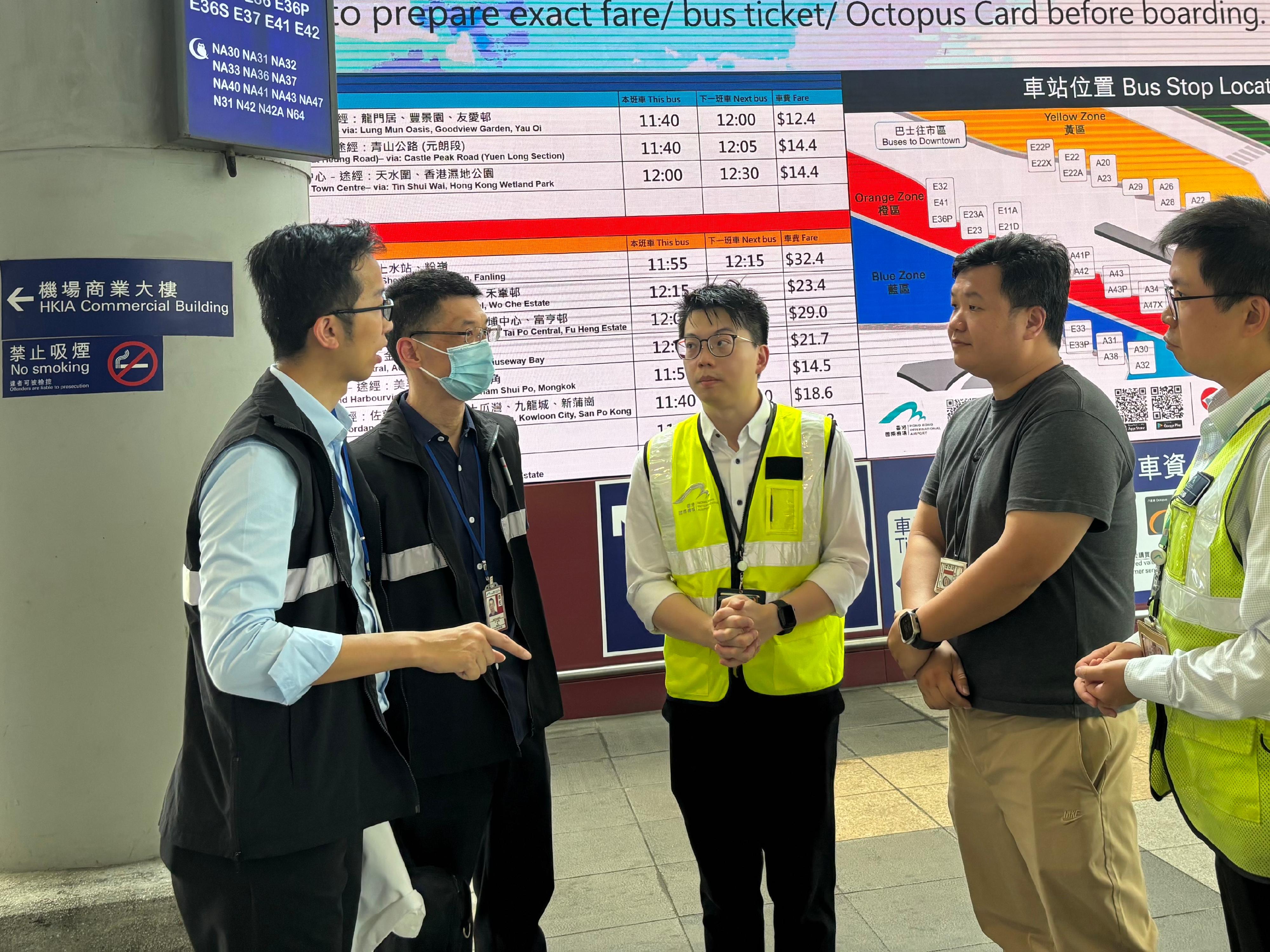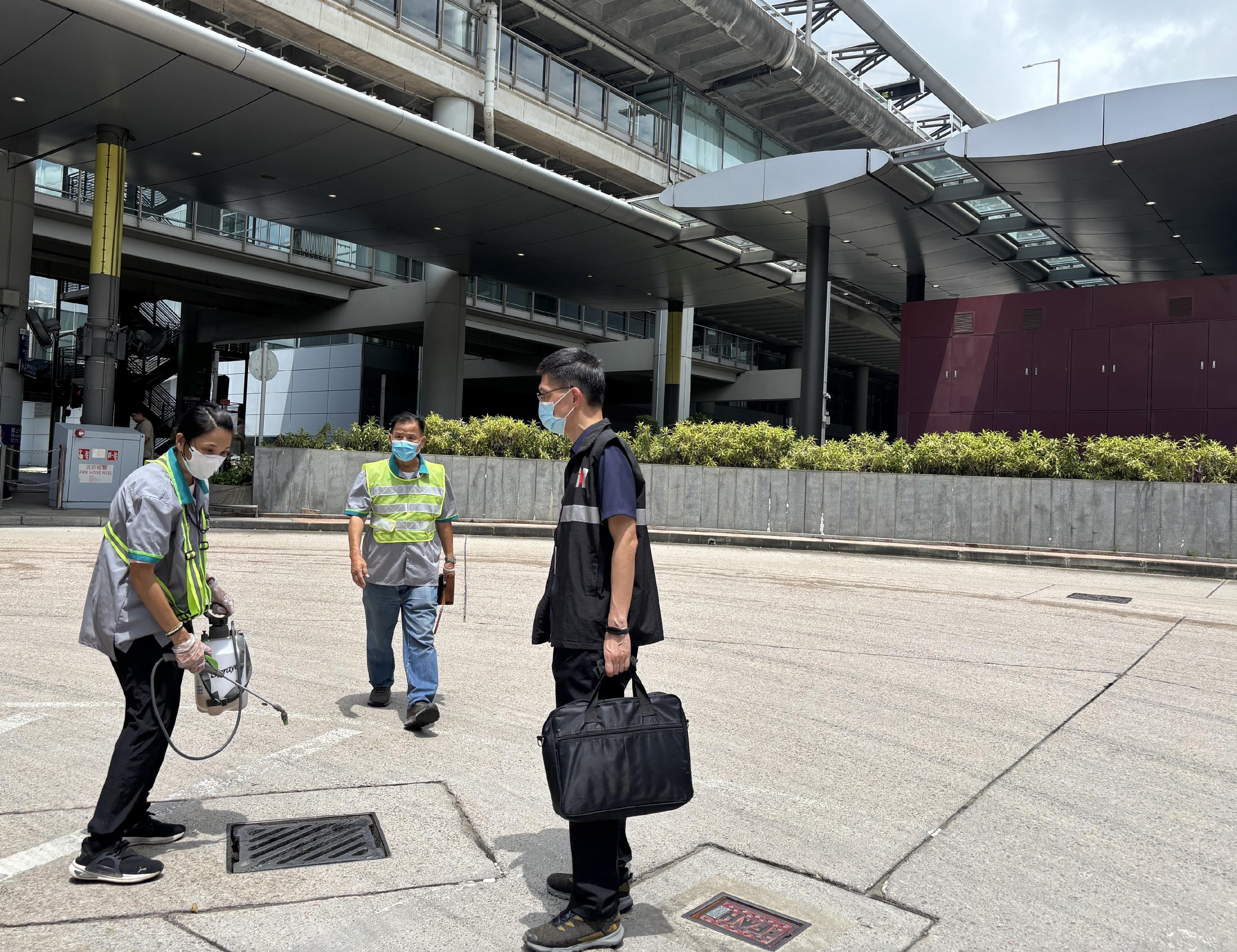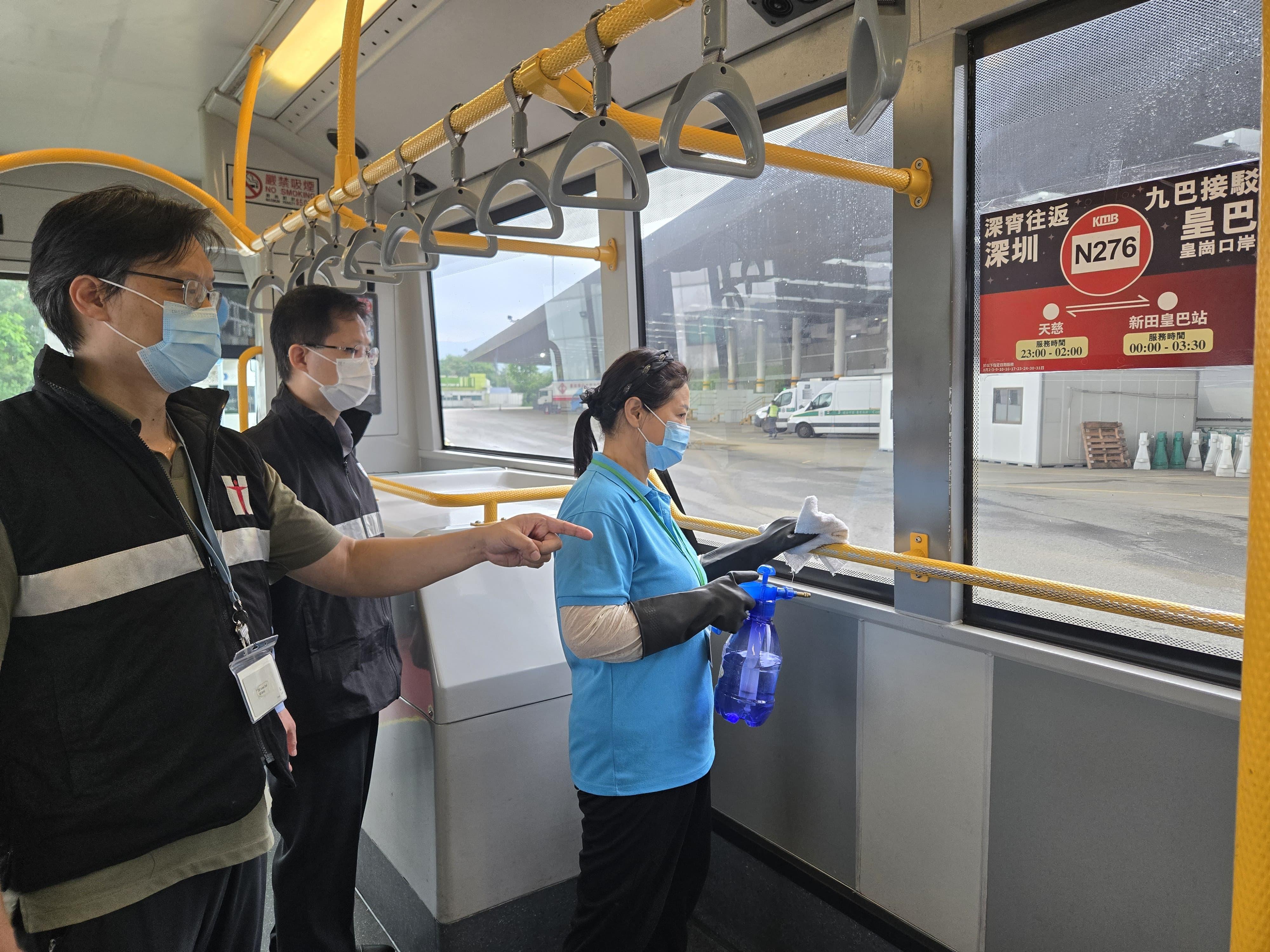CHP announces no new confirmed chikungunya fever infection cases today (with photos)
************************************************************************************
A total of four CF cases have been recorded in Hong Kong this year, all of which were imported cases. From 2016 to 2019, between one and 11 CF cases were recorded in Hong Kong each year, all of which were imported cases.
The DH has enhanced publicity and education efforts regarding CF targeting different groups. The CHP's Port Health Division continues to step up inspections at boundary control points to ensure good environmental hygiene and effective implementation of anti-mosquito measures, and also distributes leaflets to travellers. The Port Health Division staff members conducted inspections yesterday (August 6) and today respectively at the Lok Ma Chau Control Point and in the vicinity of the Hong Kong International Airport Ground Transportation Centre, and reminded the cross-boundary coach companies operators and the Airport Authority Hong Kong to strengthen anti-mosquito measures. Furthermore, staff members of the Port Health Division also conduct temperature screening for inbound travellers. Any travellers with fever or related symptoms will be assessed for their health condition and referred to hospitals for follow-up when necessary.
To raise the awareness of the elderly on preventing CF, the Visiting Health Teams under the Elderly Health Service of the DH have been advising the elderly on CF prevention and travel health at the health talks conducted at District Elderly Community Centres and Neighbourhood Elderly Centres, and remind residential care homes for the elderly to enhance mosquito control measures. As of yesterday, the Visiting Health Teams under the Elderly Health Service of the DH has incorporated information of CF prevention into 296 health promotion activities provided to the elderly and their carers. In addition, the Elderly Health Service has arranged for the distribution of relevant leaflets at Elderly Health Centres across the 18 districts, with a view to helping the elderly to learn about the symptoms of CF and enhance their awareness of prevention of CF. The Family Health Service has also advised pregnant women and infant carers at its Maternal and Child Health Centres about precautions for preventing CF. The Student Health Service will distribute promotional leaflets to students at its Student Health Service Centres and Special Assessment Centres so that students could learn more about symptoms of CF.
The CHP today issued another letter to all doctors and hospitals in Hong Kong regarding CF to provide them with the latest epidemiological information and appeal them to watch out for CF-related symptoms among those who return to Hong Kong from outbound travel to affected areas. If there are suspected CF cases, they should immediately refer the patients to hospitals for treatment and reported to the DH in accordance with the established mechanism so that the DH can initiate epidemiological investigations, and implement prevention and control measures. Moreover, for patients with typical clinical symptoms of CF, irrespective of their travel history, doctors should consider to arrange testing based on clinical judgment.
The Head of the Communicable Disease Branch of the CHP, Dr Albert Au, reminded members of the public to adopt precautions in the rainy season against mosquito-borne diseases. If members of the public return from areas affected by mosquito-borne diseases, they should apply insect repellent for 14 days upon arrival in Hong Kong. They should closely observe their personal health condition, in particular symptoms such as fever, joint pain and rash. If they feel unwell, they should seek medical advice promptly and provide their travel details to the doctor for clinical diagnosis and arrangement of appropriate testing based on an individual patient's condition. Members of the public are urged not to self-medicate, particularly with aspirin or non-steroidal anti-inflammatory drugs (such as ibuprofen), as these drugs may cause serious side effects, for example increasing the risk of haemorrhage. In general, children should not take medications containing aspirin to relieve fever or other symptoms, as it may lead to a serious and potentially fatal complication called "Reye's syndrome".
The CHP recommends that the public properly use DEET-containing insect repellents or other effective active ingredients to effectively prevent mosquito bites. The following precautions should be taken when using them:
- read the label instructions carefully first;
- apply right before entering an area with risk of mosquito bites;
- apply on exposed skin and clothing;
- use DEET of up to 30 per cent for pregnant women and up to 10 per cent for children (For children who travel to countries or areas where mosquito-borne diseases are endemic or epidemic and where exposure is likely, those aged 2 months or above can use DEET-containing insect repellents with a DEET concentration of up to 30 per cent);
- apply sunscreen first, then insect repellent;
- reapply only when needed and follow the instructions; and
- in addition to DEET, there are other insect repellents available on the market containing different active ingredients, such as IR3535, picaridin etc. When using any insect repellent, the public should follow the usage instructions and precautions on the product label.
The Food and Environmental Hygiene Department (FEHD) has intensified anti-mosquito measures at the residence of the confirmed patients and the locations visited after the onset of illness. The FEHD appeals to members of the public to continue to stay alert and work together to carry out mosquito prevention and control measures early, including inspecting their homes and surroundings to remove potential breeding grounds, changing water in vases and scrubbing their inner surfaces as well as removing water in saucers under potted plants at least once a week, properly disposing of containers such as soft drink cans and lunch boxes. The FEHD also advises members of the public and property management agencies to keep drains free of blockage and level all defective ground surfaces to prevent the accumulation of water. They should also scrub all drains and surface sewers with an alkaline detergent at least once a week to remove any mosquito eggs.
The public should call 1823 in case of mosquito problems and may visit the following pages for more information: the CF page of the CHP and the Travel Health Service, the latest Travel Health News, tips for using insect repellents, and the CHP Facebook Page, Instagram Account and YouTube Channel, and also Mosquito Prevention and Control dedicated page of the FEHD.
Ends/Thursday, August 7, 2025
Issued at HKT 20:12
Issued at HKT 20:12
NNNN








